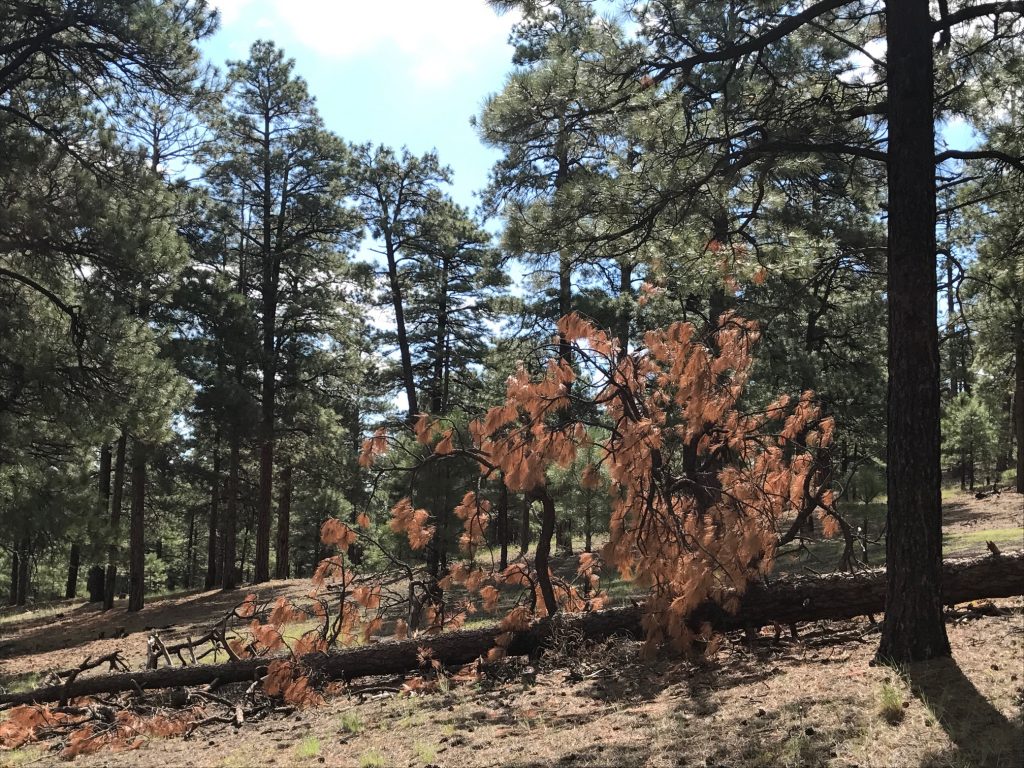By Heidi Toth
NAU Communications
How much is a tree worth?
Julie Mueller is going to find out.
Mueller, an associate professor in The W. A. Franke College of Business and School of Earth Sciences and Environmental Sustainability (SESES), was awarded a $185,000 grant from the U.S. Geological Survey to measure the economic value a forest ecosystem in northern New Mexico provides. This project takes into account a variety of benefits a healthy forest provides to surrounding areas, including cleaner air, water for municipal and agricultural use and recreation opportunities for residents and tourists.
This type of question matters, Mueller said, because many residents who lives near forests get significant economic benefit from forests but don’t always recognize or factor in those benefits. With increased fire frequency and severity, government agencies are taking on more of a management role in protecting and regenerating forests and are making decisions without this information.
“Understanding the monetary value of ecosystem services provided by forests is essential for efficient protection and forest use decisions,” Mueller said. “Without dollar values for benefits of ecosystem services provided by a forest, decisions may be made solely based on easily quantifiable outputs such as profit from timber harvest or land values for development, potentially resulting in an inefficient outcome.”
Her project, which is built on previous research she’s done in northern Arizona, includes holding focus groups and interviewing stakeholders in New Mexico as well as surveying the state’s residents regarding their willingness to pay for water-related ecosystem services provided by forests. This methodology, known as a choice experiment, uses a sophisticated survey design and econometric analysis to estimate the monetary value of goods and services that aren’t bought and sold in the typical sense.
This is the latest in a string of research projects related to water sustainability and forest ecosystems in which Mueller has participated. In 2011, she and SESES professor Abe Springer earned a grant from the National Science Foundation that funded a survey of irrigators in the Verde Valley regarding wiliness to pay for forested watershed restoration. She also collaborated with the Ecological Restoration Institute at NAU to determine Flagstaff residents’ willingness to pay for watershed restoration.
Once the project is completed, Mueller said her team will work with various stakeholders to incorporate the estimated values into the models being used to estimate ecosystem services.



